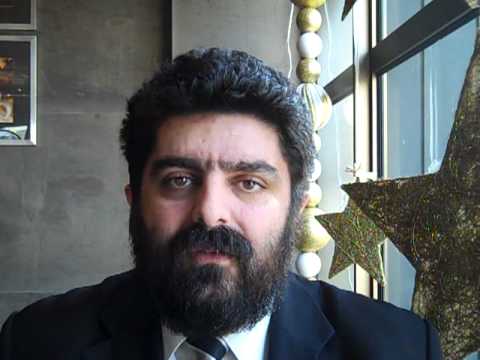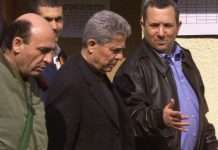Call for action to condemn the Lebanese authorities’ pervasive convocations of activists limiting freedom of expression
كتاب مفتوح موجه لمفوضية الامم المتحدة لحقوق الانسان من اجل الحد من قمع الحريات في لبنان
August 17, 2018
To: His Excellency Zeid Ra’ad Al Hussein, United Nations High Commissioner for Human Rights, and Mr. David Kaye, Special Rapporteur on the promotion and protection of the right to freedom of opinion and expression.
Re: Call for action to condemn the Lebanese authorities’ pervasive summons of peaceful activists infringing their right to freedom of expression.
Mr High Commissioner, Mr Special Rapporteur, We, the undersigned organisations, are writing to express our great concern about the current human rights situation in Lebanon.
For many months, Lebanese security agencies, particularly the Cybercrime Bureau of the Internal Security Forces, have been summoning individuals with regard to social media posts. Many of these convocations result in periods of deprivation of liberty and often ends with activists signing pledges restricting their freedom of expression. Our appeal has been triggered by the summoning of a prominent Lebanese human rights defender, Mr. Wadih al-Asmar. On Thursday August 16, Mr. Al Asmar received a call from the Cybercrime Bureau requesting him for questioning with regard to posts published on his Facebook account.
Since 2016, there have been at least 39 summons of Lebanese citizens who have made public comments criticizing the Lebanese authorities or political figures. Most of these persons were questioned by the Cybercrime Bureau, which belongs to the judicial police, which often interrogates and intimidates civilians on grounds ranging from posting a picture commenting on a minister’s facial features to much more serious posts questioning the unethical business practices among Lebanese companies. Lebanese authorities have investigated and, in some cases, arbitrarily deprived the liberty of Bassel el Amin, Hassan Saad, Ahmad Amhaz, Firas Bou Hattoum, Tarek Abou Saleh, Hanady Gerges, Fidaa Itani, Rabih Damej, Charbel Khoury, Joy Slim, Imad Bazzi, Safa Ayyad, Rawan Khatib, and Charbel Khoury, among others. Although all of these individuals have eventually been released from detention, Mr. el Amin and Mr. Ahmaz, have been indicted a year after their questioning. Many of those summoned have been charged under Articles 383 to 386 of the Lebanese Criminal Code which criminalise contempt, slander, and libel of public officials.
Those arrested by the military intelligence were Selman Samaha – who was questioned before a military court on charges of “offending the reputation of the military institution” –, Pierre Hashash, Khaled al-Abushi, and Hanin Ghaddar, who was charged in absentia. 15-year-old Youssef Abdallah was also detained for 38 hours by the military intelligence, and denied the right to have a lawyer present during his interrogation, because of a WhatsApp image he had shared considered to be mocking the President. Furthermore, journalists are also often victims of judicial harassment under charges of slander and libel; including recently Mohamad Zbib, Mariam Bassam, and Karma Khayat, whose cases were referred to criminal courts rather than the court of publications. These cases come in addition to the arrests and summons of Mohammed Awad, Omar Kaskas, Ahmad Ismail, and Nabil el Halabi, the latter of whom was released only after signing a pledge that he would refrain from writing about the minister of interior or his advisor.
The authorities have been resorting to these severe violations of fundamental rights and freedoms in a systematic fashion, deterring individuals from speaking out and creating a feeling of insecurity and self-censorship.
Our organizations, individually and jointly, have reported numerous times about these cases, and have submitted joint reports to the Human Rights Committee as part of Lebanon’s review of its compliance with the International Covenant on Civil and Political Rights. We believe that the right to freedom of expression is a sine qua non condition for the realization of the principles of transparency and accountability that are, in turn, essential for the promotion and protection of human rights.
Although we recognize the duty of the state to also ensure the respect of the rights or reputation of others, as well as ensure the protection of national security, and morals; these restrictions, as per the wording of Article 19 ICCPR, “shall only be such as are provided by law and are necessary”. They should not put the right itself in jeopardy by resorting to intimidating measures which infringe these individuals’ right to freedom of opinion and expression.
Mr High Commissioner, Mr Special Rapporteur, as we currently have a new parliament and are awaiting the formation of a new government, the Lebanese authorities must be reminded of their commitment, and obligation, to ensure “freedom of speech and belief”. Such freedoms have been deemed the “highest aspiration of the common people” by the Universal Declaration for Human Rights. The abovementioned practices can only remind the Lebanese society of a dark – yet recent – past of violations and restrictions which challenged democratic practices and undermined the rule of law and accountability.
Mr High Commissioner, even though your tenure is almost ending, we still regard your office as a source of authority and a reference to engage in a dialogue with all governments to secure respect for all human rights. We believe your support is crucial to ensure that the people of Lebanon enjoy the rights and freedoms articulated in the UDHR and the ICCPR.
Given the extreme gravity of these human rights violations and their recent escalation, we urge you to publicly and strongly condemn these violations of the rights to freedoms of opinion, expression, association, and peaceful assembly in Lebanon. We kindly request that you call upon the Lebanese authorities to put an end to these violations and establish the necessary prevention and accountability mechanisms to avoid their repetition.
The letter is open for endorsements.
Organisations or individuals wishing to sign, kindly email: director@alefliban.org
SIGNATORIES:
Al Amal Association (Iraq), ALEF act for human rights (ALEF), Alkarama Foundation (ALK), Arab Network for Democratic Elections (ANDE), Arab NGO Network for Development (ANND), Association for Freedom and Equality in the Middle East and North Africa (AFE-MENA), EuroMed Rights, Foundation for Human and Humanitarian Rights – Lebanon (FHHR-L), Lebanese Association for Democratic Elections (LADE), Lebanese Center for Human Rights (CLDH), Lebanese Institute for Democracy and Human Rights (LIFE), Lebanese Union for People with Physical Disability (LUPD), Lebanon Support, Media Association for Peace (MAP), PAX for Peace (Netherlands), Phenix Center for Economics & Informatics Studies, SKeyes Center for Media and Cultural Freedoms (SKeyes), Umam for Documentation and Research,
N.B: Picture Enclosed is for Lebanese human rights defender, Mr. Wadih al-Asmar






















